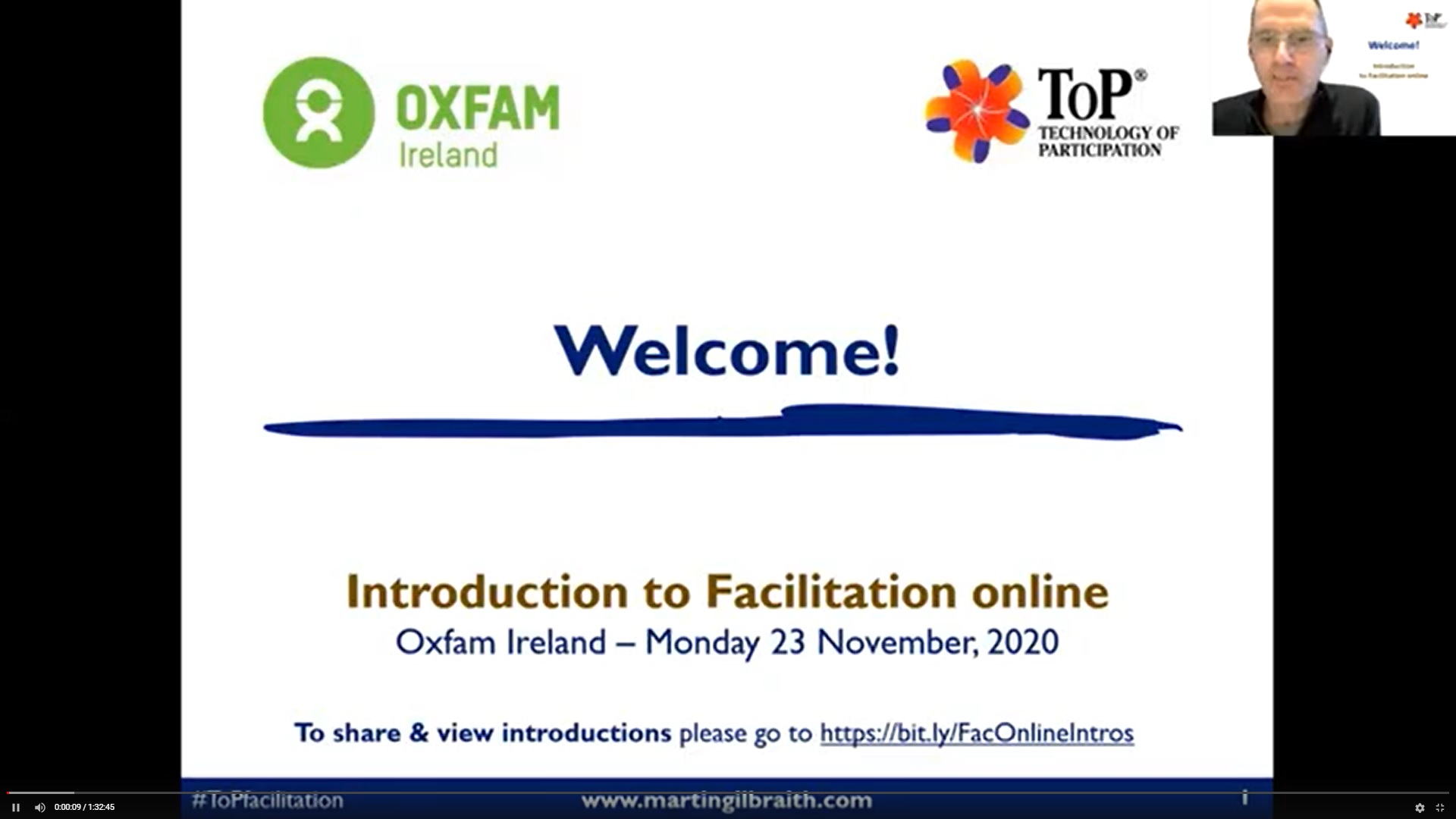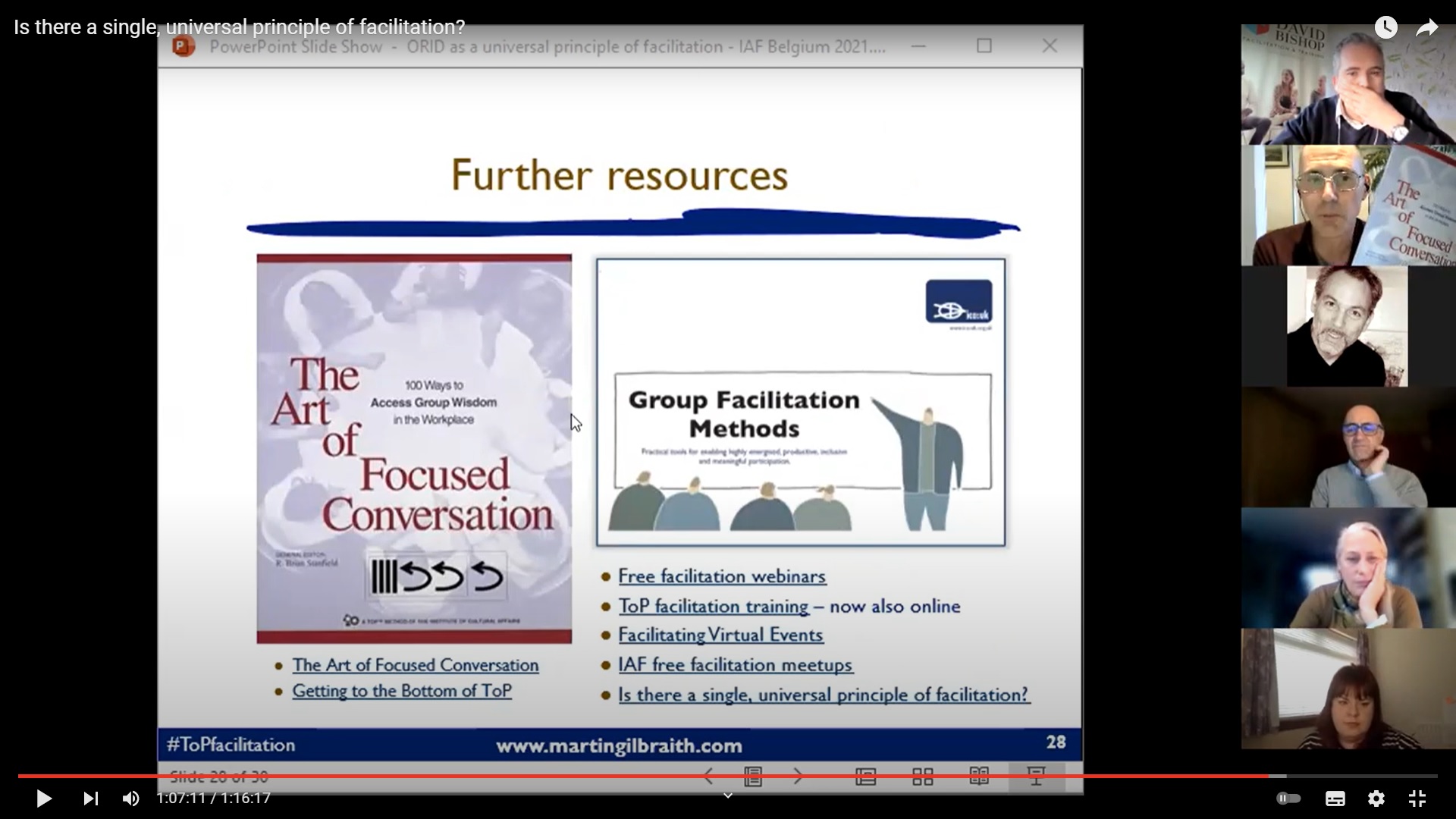 Are you interested in taking or commissioning ToP facilitation training – but you don’t find any scheduled public courses to suit you, and you don’t have a group large enough to make an in-house course cost-effective?
Are you interested in taking or commissioning ToP facilitation training – but you don’t find any scheduled public courses to suit you, and you don’t have a group large enough to make an in-house course cost-effective?
I’d be happy to talk with you about scheduling a partnership course with you, at your place, wherever you are – please contact me.
If you can provide a suitable space for the training, or perhaps venue & catering and trainer accommodation as well, then you could enjoy a number of free and/or discounted places for you or your delegates. We would need only to recruit enough fee-paying trainees between us by an agreed deadline to make up the numbers and the budget to confirm the course. Depending on the location and the deadline I may be able to recruit those extra people myself, and handle online registrations and payments. If you can recruit more people yourself, from your networks, and if you can handle registrations and payments, then you could have more free or discounted places and maybe a shorter lead time as well.
If you choose one of my regularly scheduled public courses listed below, then we will be better able to confirm the course even if you can’t recruit many people yourself. If you have particular training needs and you can recruit others who share them, then we could develop and schedule a public course tailored to meet your needs.
- Group Facilitation Methods – introducing the foundations of the ToP approach, two powerful techniques for structuring effective conversations and building group consensus – 2 days
- Action Planning – participatory planning for short-term projects and events – 1 day
- Participatory Strategic Planning – bringing people together to create strategies for action – 2 days
- ToP masterclass: Facilitating dialogue, learning, consensus & change – introducing ICA’s Technology of Participation (ToP) – transformational tools for dialogue, learning, consensus & change – 1 day
Since 2013 when I launched my own public and partnership courses under license with ICA:UK, with whom I have offered public and in-house training since 1998, I have offered dozens of such partnership courses in locations including (most often) Brussels, and Edinburgh, Geneva, Istanbul, Kiev, Moscow, Pisa and online.
I deliver in English and with simultaneous interpretation. I draw on the worldwide network of ICA International to provide ToP training materials in many languages, and to arrange for experienced local ToP trainers to deliver with me (or without me) in many languages.
I particularly welcome opportunities to deliver training within a day or two’s surface travel from London or Barcelona. If I am not tempted to fly to deliver training myself further afield, then I shall be glad to recommend an alternative experienced ToP trainer who is more local to you – see What can I do about climate change, personally and as a facilitator?
See also about me, how I work, who I work with and recommendations & case studies, and please contact me about how we might work together.
Register now in Eventbrite for my own upcoming public courses in London & elsewhere. For additional courses, dates & locations offered by fellow ICA:UK Associates, including online, see A new schedule and special offers for ToP facilitation training.













































